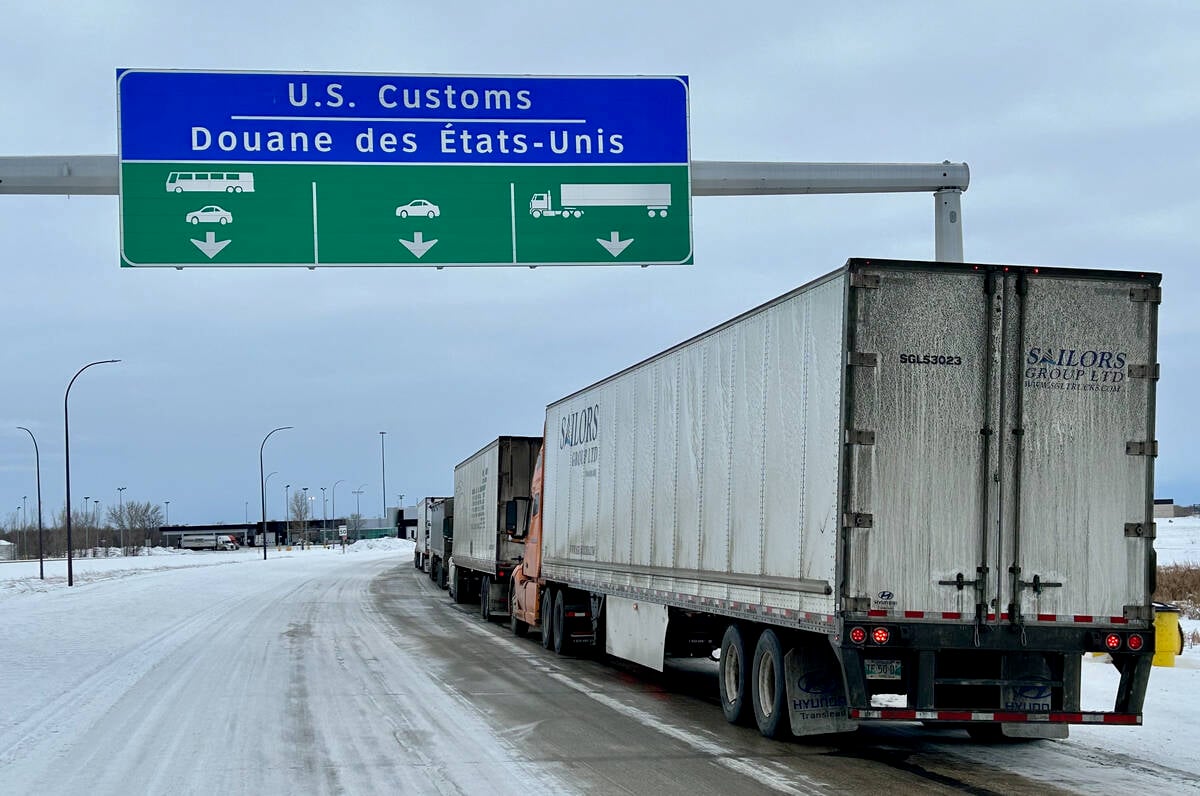Continuing uncertainty over new World Trade Organization rules has delayed the Canadian Wheat Board’s plans to talk to farmers about changes to its structure and governance.
In the aftermath of last fall’s disputed CWB election, board officials said they would initiate a thorough review of the election process and governance.
Directors said they hoped to bring the issue up at the board’s annual corporate accountability meetings in order to get ideas from farmers.
But elections and governance weren’t on the agenda at the three accountability meetings recently held in each prairie province.
Read Also

U.S. bill could keep out Canadian truckers
The Protecting America’s Roads Act, which was tabled in the U.S. House of Representatives at the beginning of October, would “rid the country of illegal immigrant commercial truck drivers and ineligible foreign nationals.”
CWB chair Ken Ritter said all the uncertainty surrounding the WTO has prevented the board from coming up with concrete plans or proposals.
“We have to consider the lay of the land, and that is not fully known yet,” he said following the board’s March 16 meeting in Saskatoon.
Possible changes to WTO rules could effectively sever the board’s financial relationship with the federal government, which could in turn have a significant impact on the board’s governance structure.
For example, if the government no longer had a financial stake in the board, there would be no reason for it to appoint five members to the agency’s board of directors.
“If the government guarantees are eliminated, certainly their involvement would be much less and accordingly, one could argue, so should their influence in governance be much less,” said Ritter.
Some have suggested that all 15 directors should be elected, while others have said the 10 elected members should take over the role of appointing outside directors.
There are also questions about how the board would deal with the loss of government guarantees.
The agency has said the federal government should compensate farmers for the value of the federal guarantees. Such a payment could be used to backstop initial payments and CWB borrowings.
The idea of a farmer checkoff to finance a contingency fund has also been raised, along with the idea of selling shares in the board.
However, Ritter said the board has not had any serious discussions yet with the government about any of those issues.
“In terms of our dealings with government, that’s just at the very beginning stages. We’re just at the beginning of the beginning.”
Ritter said the board remains committed to consulting with farmers before any changes are made.
“It’s our hope to engage producers as soon as some of these situations are a little more concrete,” he said.
















